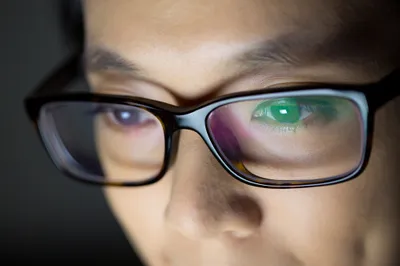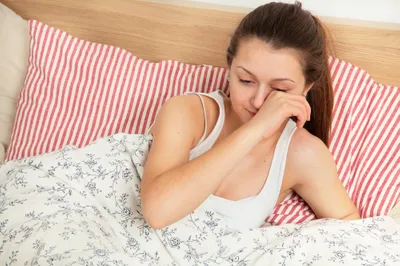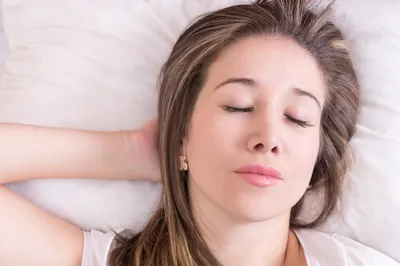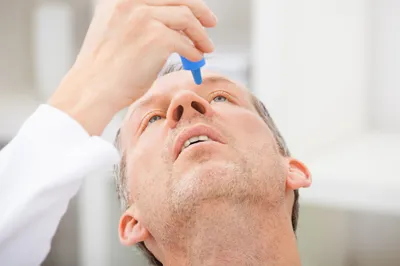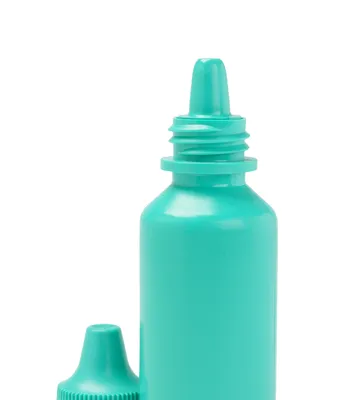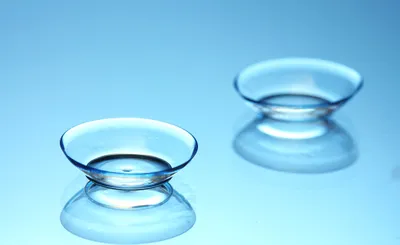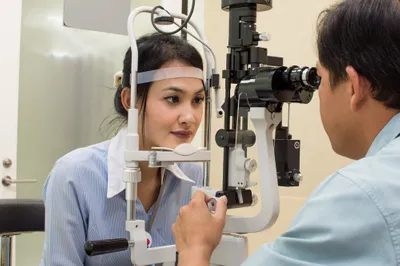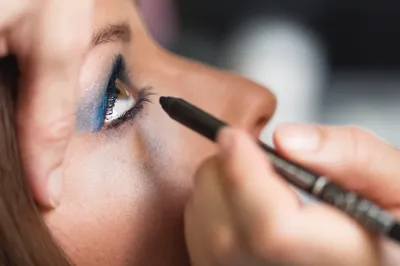Did you fall asleep in your make-up again—or worse, with your contact lenses in?
According to optometrists, both are among the regular blunders that can ruin our vision and ocular health…
1. Overuse of Electronic Devices
That electronic screen on your laptop, desktop, smartphone, tablet, television, and e-reader, if they emit a blue light backdrop are deemed as damaging as staring at the sun’s ultraviolet rays, according to eye care professionals. This is why most eye doctors caution those who work at computers all day long to take regular breaks throughout the day (approximately every 20-minutes) to look off into the distance, blink, and refocus your eyes.
2. No Sunglasses
Sunglasses might not be right for nighttime use, but they do protect your eyes on more than just sunny, summer days. For instance, during winter the sun’s rays are actually stronger when reflected back off the snow, and bright rays can literally burn your corneas, cause spot damage on the whites of the eyes, or cause skin cancer to develop on the eyelids. So wear sunglasses with full coverage and UVA and UVB protection whenever you’re outside.
3. Sleeping in Contact Lenses
If you’re in the habit of falling asleep before removing your contact lenses, consider an American Academy of Ophthalmology study, which found a 10-times increased risk of corneal ulcers in patients who didn’t remove lenses before sleep, even when lenses were deemed “extended-wear contact lenses.” The study found that during sleep, lenses deny the corneas of oxygen, raising the risk of bacterial infection. Not to mention, if you awake and remove lenses from dry eyes, you can actually tear or damage the outer layer of your cornea if you don’t use artificial tears before removal…ewwww!
4. Falling Asleep in Make-up
Ladies, we’re all guilty of coming home and falling asleep with a full face of make-up after a late night on the town. However, sleeping in make-up stifles the glands around the eyes, encouraging skin irritation and even a stye (inflamed bumps on the eyelid) around the eyes as well as corneal infection and inflammation.
5. Redness-Reducing Eye Drops
If you ask any optometrist you’ll get resounding concurrence when it comes to redness-banishing eye-drops—don’t use them! Over-the-counter lubricants are able to reduce redness because they contain vasoconstrictor chemicals and preservatives that shrivel the blood vessels to make redness dissipate. However, they are just hiding the real problem. Instead, talk to your optometrist about red eyes and use natural eyes moisturizers, like true tears with no chemical additives.
6. Expired Eye Drops
There are certain products you just shouldn’t use past the expiration date—and eye drops is definitely one of them! Why? Because both eye drops and contact lens solution contain ingredients that eradicate bacteria that’s prone to lingering on lenses. If the solution is expired, chances are the anti-bacterial ingredients are expired to, risking you a nasty infection.
7. Past Due Contact Lenses
Like expired eye drops and contact lens solution, past due contact lenses pose a danger to your peepers if they are no longer sterile solution or have begun to degrade. Both can cause a nasty amoebae-related infection of the cornea, known as Acanthamoeba Keratitis.
8. Skipping Annual Eye Exams
Just because your vision was 20/20 in 2008 doesn’t give you cause to skip your annual eye exam. For instance, VSP, the largest not-for-profit vision insurance company in the U.S., cautions that an annual eye exam can detect more than just standard vision issues—exams can uncover glaucoma, diabetes, and even life-threatening brain tumors that would otherwise be missed.
9. Eye-Rimming Eyeliner
I know its en vogue to rim the inside of your bottom lashes with blackest of black eyeliner. However, makeup and tears don’t mix, especially if your liner pencil is rife with germs or bacteria. And if you are a contact lens wearer, tiny makeup particles on your lenses can be painful and greatly raise the risk of eye infection.
10. Rubbing Those Eyes
It’s tough to resist rubbing tired, dry, red, and allergy-prone eyes. However, the poking and rubbing motion can damage the mucous membranes, or moist tissues that protect your eyes, leading to bacteria accumulation, inflammation, conjunctivitis, or a broken blood vessel, especially if you wear contact lenses, have a cold, and/or aren’t’ in the habit of washing your hands before they come into contact with your eyes.

